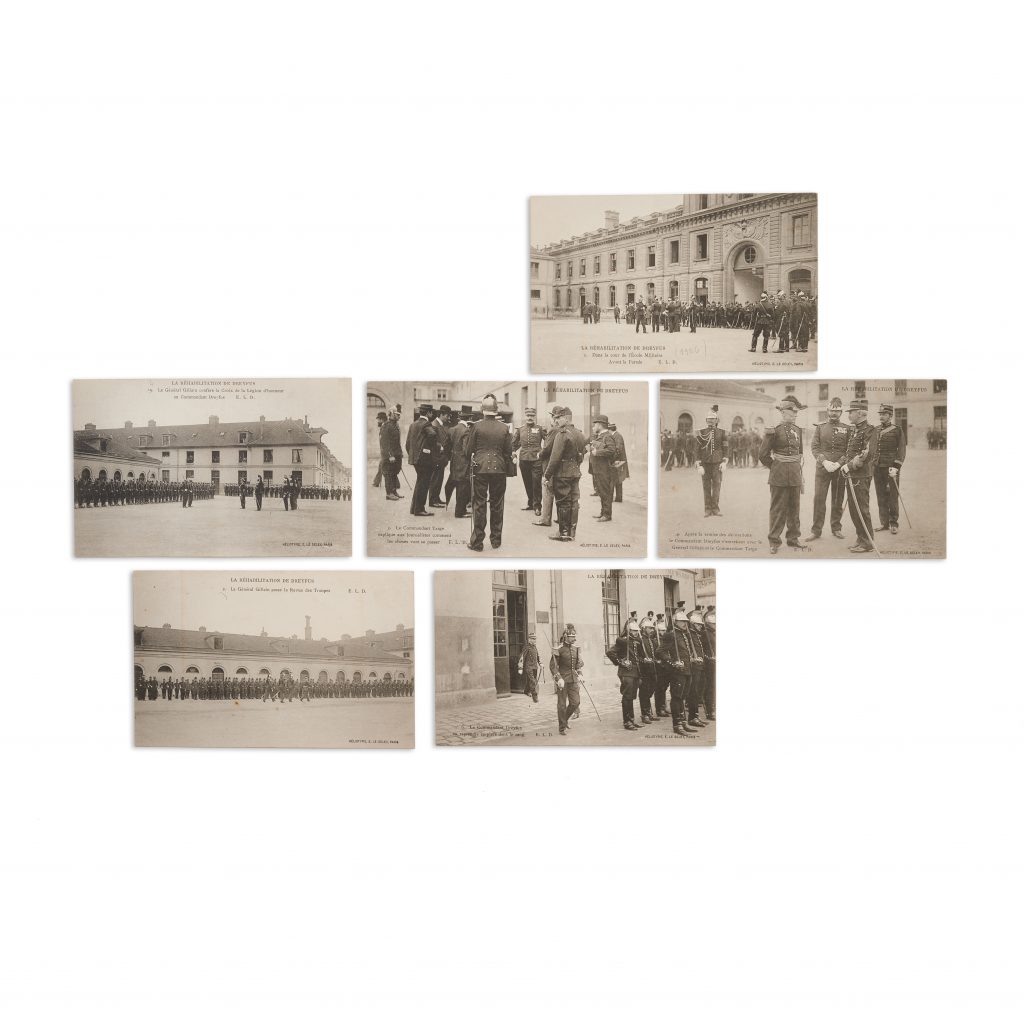Postcards illustrating the exoneration of Alfred Dreyfus (1859-1935)
France, 1906
1. Dreyfus speaks with General Glein and Commandant Targe
2. General Glein gives Grant Dreyfus the Knight of the Legion of Honor
3. Major Dreyfus returns to the army
Museum collection
More Info
While Dreyfus was exonerated in 1906 it was not until 1995 that the French army publicly declared his innocence.
The Dreyfus affairs caused a deep public divide in France between those agreeing and disagreeing with the verdict to reopen and exonerate Dreyfus. Dreyfusards represented an alliance between Republicans, radicals and Socialists who protested for Dreyfus’ innocence. Anti-Dreyfusards, on the other hand, maintained their agreement with the original guilty verdict and were compromised of supporters of the Catholic Church, the military and the right wing. Their exploitation of antisemitism within the case has sparked discussions on extreme nationalism and the involvement of the Church in the judicial system within France. The Dreyfus affair had repercussions on politics in the land of liberty and revolution for decades to come and challenged France’s identification as a Catholic nation.
Theodor hertzl, one of the forefathers of the European zionist movement was heavily influences by the Dreyfus affair, leading his to convene the first World Zionist Congress in 1897.

